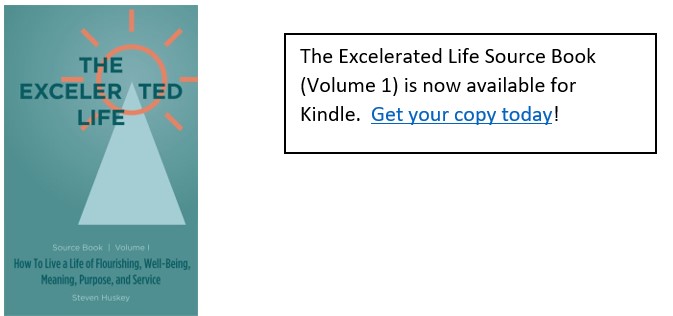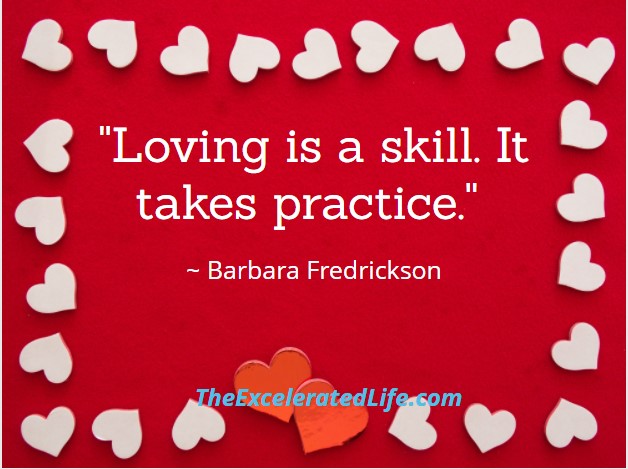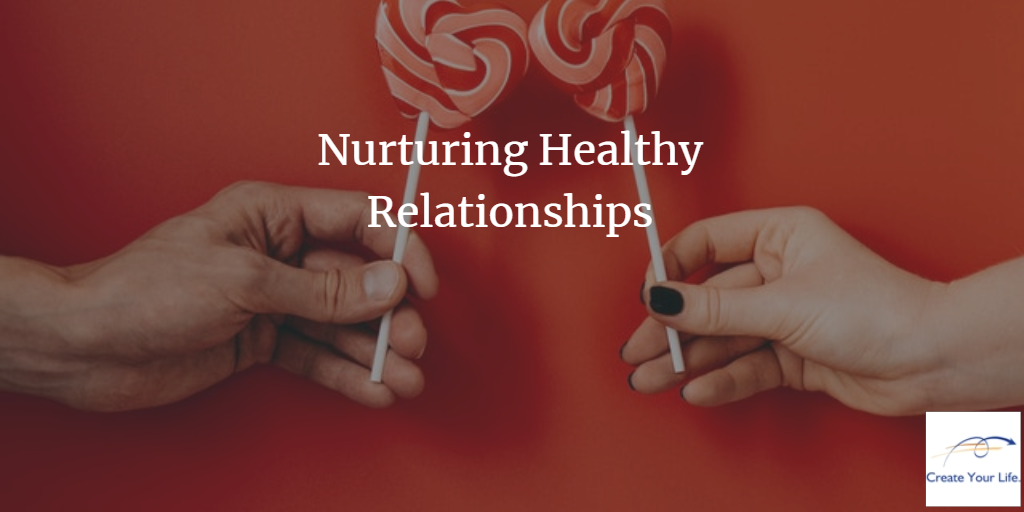Just as we have financial accounts into which we deposit and withdraw money, we have “emotional bank accounts” with loved ones, friends, and colleagues. We make deposits and withdrawals into these accounts as well. If our balance in these accounts is high, we can make the occasional withdrawal without any harmful consequences. But too few deposits and too many withdrawals can leave us with an overdrawn account. Nurturing healthy relationships includes making frequent deposits into the emotional bank account, especially of those closest to us.
TheExceleratedLife.com
Title Photo by alleksana from Pexels
The Emotional Bank Account
When I was a young man in my early twenties, I worked at laboring jobs at just above minimum wage. I lived paycheck to paycheck with little reserve for emergencies. I had a car but keeping it maintained and in good order was not a priority. However, I had a mechanic who did good work and was reasonably priced.
One afternoon at work, a lady from the office came to me to say I had a phone call. When I answered it, it was my mechanic. I had recently written a check for some work he had done but the check had bounced. In my defense, I thought I had money in my account to cover it, but keeping track of the account balance was not a priority. He was, not irate, but insistent that I come by his shop that afternoon and pay him in cash. I did that. Now I had even less money in my account because of the returned check charge. My account was most definitely overdrawn!
Just as we have financial accounts into which we deposit and withdraw money, we have “emotional bank accounts” [1] with loved ones, friends, and colleagues. We make deposits and withdrawals into these accounts as well. If our balance in these accounts is high, that is, we’ve made lots of deposits, we can make the occasional withdrawal without any harmful consequences. But too few deposits and too many withdrawals can leave us with an overdrawn account, much like my checking account was. And, just like my overdrawn check, when you overdraw an emotional account, there is a price to pay, sometimes a high price. This is why nurturing healthy relationships includes making frequent deposits into the emotional bank accounts, especially of those closest to us.

Investing For The Long Term
One thing about emotional accounts to keep in mind is that they are long-term investments. In a financial account, the longer you save and invest, the larger your balance grows. Persistence (and the magic of compounding) pays off in the growth of the account. You can’t deposit money today, withdraw it next week, and expect to see your investment increase. And this is equally true for emotional accounts.
“Investments in relationships with friends and family need to be made long, long before you’ll see any sign that they are paying off,” writes Clayton M. Christensen in How Will You Measure Your Life? “If you defer investing your time and energy until you see that you need to, chances are it will already be too late.” [Christensen]
Start making investments in the emotional account of others right away. As Christensen says: “The clock of building a fulfilling relationship is ticking from the start. If you don’t nurture and develop those relationships, they won’t be there to support you if you find yourself traversing some of the more challenging stretches of life, or as one of the most important sources of happiness in your life.” [Christensen]
Nurturing healthy relationships is not a one-time thing or a get-rich-quick scheme. “[T]here really is no quick fix,” Stephen Covey tells us. “Building and repairing relationships are long-term deposits.” [Covey]
Earning Interest On Our Accounts
Making deposits in a financial account allows you to take withdrawals from time to time without overdrawing the balance. But there is another benefit – your money grows thanks to compound interest. A healthy emotional account allows you to make withdrawals if needed. But there is a second, personal benefit.
In Love 2.0, Barbara Fredrickson writes about love. “Love, as it turns out, nourishes your body the way the right balance of sunlight, nutrient-rich soil, and water nourishes plants and allows them to flourish. The more you experience it, the more you open up and grow, becoming wiser and more attuned, more resilient and effective, happier and healthier.”
“To put it in a nutshell, love is the momentary upwelling of three tightly interwoven events: first, a sharing of one or more positive emotions between you and another; second, a synchrony between your and the other person’s biochemistry and behaviors; and third, a reflected motive to invest in each other’s well-being that brings mutual care.” [Fredrickson]
An investment “in each other’s well-being that brings mutual care”, that is, investing in their emotional bank accounts. But to do that, we must understand what an investment is and what constitutes a withdrawal.

What Is An Emotional Account Deposit?
It’s necessary to understand that deposits vary from person to person. I may do something that would be a deposit for me, but it may have no effect for the other person. Worse, it could even amount to a withdrawal. With that in mind, here are some guidelines for determining deposits.
Seek first to understand, then to be understood. “Cultivating the habit of understanding first and making judgments second will also help you avoid pointless conflicts and create deeper connections with those around you.” [Ryan]
Actively look for ways to connect with others. “As your day unfolds, seek out at least three opportunities to connect with others like this, with warmth, respect, and goodwill. Opportunities may spring up at home, at work, in your neighborhood, or out in your community. Wherever you are, open toward others, freely offering your attention, creating a sense of safety, through eye contact, conversation, or, when appropriate, touch. Share your own lighthearted thoughts and feelings, and stay present as the other person shares theirs.” [Christensen]
What Is A Withdrawal?
Just as deposits are different for different people, withdrawals may be different, too. But keep these points in mind.
A deposit for you is not necessarily a deposit for another person. “Ironically, . . . many unhappy marriages are often built upon selflessness. But the selflessness is based on the partners giving each other things that they want to give, and which they have decided that their partner ought to want . . .” [Christensen]
Don’t assume you know what a deposit is. “It’s easy for any of us to make assumptions about what our spouse might want, rather than work hard to understand the job to be done in our spouse’s life.”
“Yes, we can do all kinds of things for our spouse, but if we are not focused on the jobs she most needs doing, we will reap frustration and confusion in our search for happiness in that relationship.” [Christensen]
In short, what you think is a deposit into another’s account might actually be a withdrawal for them.
And a major withdrawal? Not seeking first to understand. “When faced with difficult conversations or emotionally charged situations, it is always a challenge to pause to ask if you have all of the facts you need to draw fair conclusions. It is easy – too easy – simply to react, often passionately and often based on assumptions rather than facts.” [Ryan]
How Can I Invest In The Emotional Bank Account?
As we’ve discussed, a major deposit in another’s emotional account is to seek to understand them, on their terms. And a major withdrawal is jumping to conclusions, forging ahead, without first understanding the other person and the situation. In addition to that big deposit, here are some other ideas.
These could be deposits into the emotional account of your spouse, your children, other family members, and friends. Just remember that the action must be a deposit for them, so ask if you aren’t sure.
- Active constructive response.
- Paying attention to the little things; performing small acts of kindness; saying Thank you and otherwise showing appreciation.
- Sincerely apologize when you make a mistake.
- Remember that T-I-M-E spells LOVE.
- Make and keep commitments, don’t break promises (therefore, don’t make promises you can’t keep).
- Use empathic listening in a conversation with a friend. Don’t probe, don’t offer advice, don’t judge. Do question for clarification and repeat back what you’ve heard to promote understanding.
- In conversations, don’t only listen to the words – listen to the facial expressions and body language as well.
Your Closest Relationships Need Constant Deposits
An important point to keep in mind is that your closer, more intimate relationships require frequent deposits into the emotional account. “With continuing expectations,” says Stephen Covey, “old deposits evaporate.” [Covey]
With acquaintances who you seldom see, deposits can last longer. You’ve likely had the experience of running into an old school friend, whom you haven’t seen for years, and it’s like you saw them just last week. Your emotional account with that friend is still strong.
Therefore, focus on your closest relationships; these accounts need regular deposits. They don’t have to be huge, but they must be regular and consistent. Make small, continuous deposits in the emotional accounts of those you love. That is embracing your Excelerated Life™!
Developing Excelerated Relationships™ — nurturing ties to other people — is one step in creating your Excelerated Life™, a life of flourishing and well-being, and a life of meaning, purpose, and service.
Read more about the Excelerated Life™.
Footnotes:
[1] I’ve borrowed the concept of an emotional bank account from Stephen Covey’s i-The 7 Habits Of Highly Effective People. See resources.
Resources:
Christensen, Clayton M. How Will You Measure Your Life? New York: HarperCollins Publishers Inc., 2012.
Covey, Stephen R. The Seven Habits Of Highly Effective People. New York: Simon & Schuster, 1989.
Fredrickson, Ph.D., Barbara, L. Love 2.0: How Our Supreme Emotion Affects Everything We, Feel, Think, Do, And Become. New York: Hudson Street Press, 2013.
Ryan, James E. Wait, What? And Life’s Other Essential Questions. New York: HarperCollins Publishers Inc., 2017.



One Reply to “Nurturing Healthy Relationships”